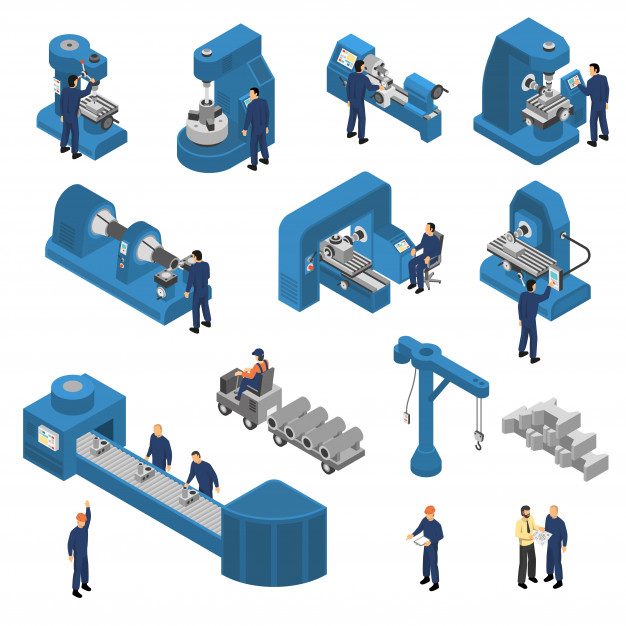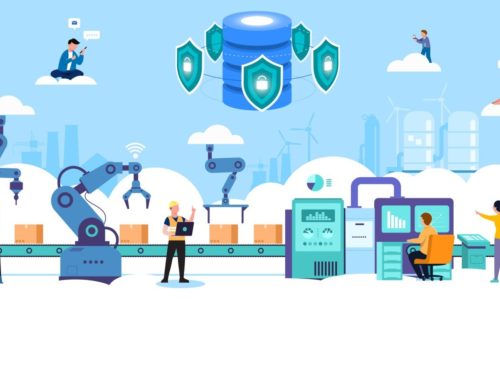We have all encountered using some form of technology in our daily lives. In fact, we probably don’t even remember what life is like without it.
Operational technology and informational technology in the past were separate but as technology innovates they can be very similar making it harder to distinguish.
This article will help clarify the differences and help you understand, which one is suitable for your industry of work.
What is Operational Technology?
An industrial process and manufacturing/industrial equipment that needs to be managed, monitored or controlled. These can be electricity in factories, escalators and elevators, transportation systems, the utility industry, and more. Operational technology keeps these industries running using hardware and software.
What is SCADA?
SCADA (Supervisory Control and Data Acquisition) is an example of operational technology. It is used to control industrial processes, monitor, gather, and process real-time data, interact with devices, and record events. This type of process helps companies reach market demands.
The industries that depend on SCADA are telecommunications, waste control, water, control, and oil and gas refining. They use Programmable Logic Controllers (PLCs) to function properly. The PLCs get their information from input devices or sensors, followed by processing the data, and then performing dedicated tasks or output information based on what the programs tell them to do. PLCs have several functions, they can monitor machine productivity, track operating temperatures, and automatically stop or start processes.
A basic SCADA system will have sensors, which send data to programmable logic controllers or remote terminal units (RTUs). Followed by PLCs or RTUs then feeding data to the SCADA system. It is viewed by the human-machine interface (HMI)/ SCADA Panel, which is supervised and controlled by an operational terminal. Also, it can be viewed from an HMI/SCADA computer supervised and controlled from a workstation. This works by the manual inputs sending data to PLCs or RTUs. That data is then passed to the SCADA system and is viewed by the HMI/SCADA computer.
Operational technology devices are usually handled by highly-trained people, which are only a few individuals within an organization. They do not operate on iOS or Windows, instead, they need custom software to work efficiently.
Advantages of Operational Technology
Quality – The use of manufacturing technology means that there will be fewer humans involved as everything is mostly operated by machines. There will be few to no human errors because machines are already programmed and can work faster and efficiently without any disturbances. Nowadays robots and automation are preferred to work inside production facilities instead of people.
Cost Reduction – We’ve established that machines make fewer errors. This means that the fewer errors the more productivity there is, which results in an increase in profit. Also, your company can save money by hiring fewer people to work in the plant.
Planning and Forecasting – Technology makes it easier for your company to plan and schedule, helping you to meet your customer needs without wasting resources or time. When you are able to plan and predict accurately you will only produce and supply what you need to meet your customer demands.
Disadvantages of Operational Technology
Reduced Creativity – Machines only do what they are told even when they encounter problems. Employees however can brainstorm when faced with any problems. The use of machinery means fewer people will be involved.
High-Cost First Purchase – Although machinery will reduce your costs and increase productivity. Buying machinery is an investment. You must weigh out your options in the long-run to check if it is in line with your goals.
Unemployment – Now that machines work efficiently, employees won’t be needed as much. This results in people losing their job.
Maintenance – “Bugs” and malfunctions can not be avoided from time to time. This can stop or slow down the production when a machine stops performing the way you need it to. You will need to have someone with the right skills to be able to fix and operate the machines, which can cost you time and money.
What is Information Technology?
Anything that needs a computer. It can be for storage, networking, and other physical devices, infrastructure, and processes to create, process, store, secure, and exchange data. IT possesses a variety of technologies, capabilities, and functions. This technology is needed to develop, process, analyze, exchange, store, and secure information. That is why it is important in businesses and in our day-to-day lives.
IT includes hardware and software. Hardware is the physical part of a computer system. Examples of hardware are the motherboard, central processing unit, hard drive. Also, included are accessories such as your keyboard, mouse, and printer.
Software on the other hand is those that help you store your data, application, and programs such as an operating system.
IT can provide jobs in all industries. You can employ IT people to help fix computers and set them up. But IT can also be used for employees who practice product development and design, marketing and marketing research, sales and invoicing, customer and taxes, human resources and payroll, and regulatory compliance. All of these jobs need computers to operate, which is why IT is important for everyone.
Advantages of IT
Protecting and Storing Information – Unlike operational technology where they are programmed to run. IT helps you store the data and also protects it from getting hacked. Electronic storage systems allow companies to store their files and if passed to each other have virtual vaults for protection.
Communication – IT has brought everyone together through communication. Now it is easy to contact your team members through emails, video conferences, chat rooms, and other tools. Communication is key to understanding and working together.
Remote Access – Technology has made it possible to access systems anytime and anywhere through a cloud or an electronic network. This means employees can work anywhere and still be productive even if they are working outside the office.
Disadvantages of IT
Distractions – Employees can be easily distracted when they bring their own devices to work. They can be texting, playing games, and even using social media during office hours. This can get in the way of their actual work delaying their productivity.
Security – One of the most feared concerns is security risks when using cloud-based systems, companies can experience hacking, stealing company or client/customer data. This can be a huge setback for any company. It can divert people’s energy into trying to solve this or get back data that is lost. You must always ensure that all computer systems are protected whether an employee works in the office or remotely.
New Implementations and Compliance – Your company might have new solutions that need implementation. This requires time and money to train employees. This can disrupt the process as they will be concentrating on the training instead of their actual jobs. Companies must make sure their employees are up to date with regulatory compliance to avoid penalties and legal actions. Now that you’ve seen the advantages and disadvantages of informational technology and operational technology you can see how efficient they are in terms of productivity. OT works faster than IT but the downside is when malfunctions happen it can cause delays. IT has more security and can easily be fixed. However, if an OT hardware breaks you still need an expert to fix it.
Conclusion
The differences between informational technology and operational technology are listed to help you better understand, which one you and your company can benefit from.
The information provided in this blog post can help guide you and reach the goals of your company depending on your market needs.
Ardent Networks Inc. can help provide you with the solution you need with their highly skilled experts. One of the solutions they may suggest for operational technology is Fortinet. If you are interested or want to know more feel free to contact the Ardent Networks sales team.








